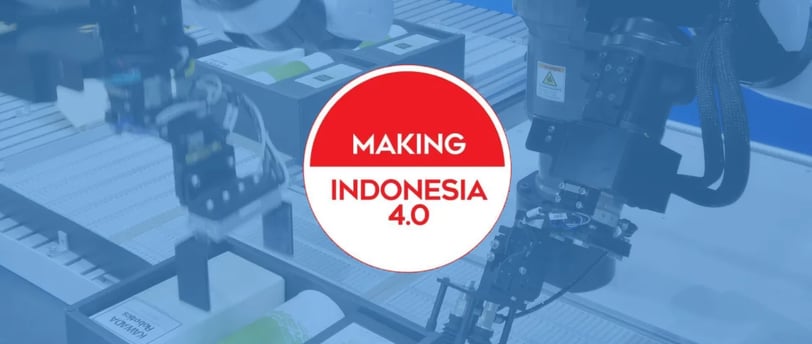Smarter, Faster, Stronger: How Industry 4.0 is Transforming Indonesia’s Business Landscape
By 2025, Industry 4.0 is expected to contribute $121 billion to Indonesia’s GDP. With one of the fastest-growing digital economies in the world, the country is primed for significant industrial and economic transformation.
Dr. Manish Shrivastava
2/12/20252 min read


As Southeast Asia’s largest economy, Indonesia is undergoing a transformational shift driven by Industry 4.0. With its ambitious "Making Indonesia 4.0" roadmap, the country is positioning itself as a global leader in smart manufacturing, digital innovation, and technological advancement.
For businesses looking to expand into Indonesia, this presents a significant opportunity. However, success in this evolving landscape requires more than just market entry—it demands adaptability, innovation, and a deep understanding of local business dynamics.
Here are six key insights for businesses seeking to capitalize on Indonesia’s Industry 4.0 transformation:
Leverage Cutting-Edge Technologies
Industry 4.0 is built on advanced technologies such as:
Artificial Intelligence (AI) for automation and decision-making
Internet of Things (IoT) to optimize manufacturing and supply chains
Robotics & Sensor Technology for increased efficiency
3D Printing to enhance production capabilities
Businesses that successfully integrate these technologies can improve operational efficiency, reduce costs, and enhance product quality, gaining a competitive advantage in Indonesia’s evolving industrial sector.
Drive Efficiency Through Digital Transformation
With the adoption of Industry 4.0, companies can unlock new levels of efficiency by:
Automating production lines to streamline operations
Optimizing supply chains using real-time data analytics
Reducing waste and lowering costs through smart manufacturing
Operational excellence is key to remaining competitive in Indonesia’s fast-growing digital economy. Businesses that prioritize efficiency will be well-positioned to succeed.
Explore New Business Models
The digital revolution is reshaping traditional business structures. Companies should consider:
Servitization – Offering products as a service-based model rather than one-time sales
Platform-Based Ecosystems – Expanding digital touchpoints to reach customers effectively
Subscription Models – Creating recurring revenue streams through digital services
By embracing new business models, organizations can unlock sustainable growth and long-term profitability.
Invest in Workforce Development
A technology-driven economy requires a skilled and adaptable workforce. To ensure long-term success, companies must:
Provide training on AI, automation, and digital tools
Foster a culture of continuous learning to keep employees ahead of industry trends
Partner with local institutions to develop workforce skills
By investing in talent development, businesses can ensure they remain agile and prepared for Indonesia’s Industry 4.0 landscape.
Collaborate with the Indonesian Government
The Indonesian government is actively supporting Industry 4.0 through:
Investment in R&D and innovation (2% of GDP annually)
Infrastructure development to enhance digital connectivity
Regulatory incentives for businesses adopting smart manufacturing
Companies should engage with policymakers, leverage government incentives, and align with national priorities to accelerate their own digital transformation.
Adapt to Indonesia’s Market Dynamics
Indonesia’s business environment is unique, and companies must consider:
Regulatory frameworks – Navigating compliance and local policies
Consumer behavior – Tailoring products to meet local demand
Infrastructure considerations – Addressing logistical and operational challenges
Businesses that customize their approach to fit Indonesia’s market conditions will have a greater chance of success in this dynamic economy.
For businesses looking to expand, the time to act is now. Those that embrace innovation, invest in digital transformation, and align with Indonesia’s Industry 4.0 vision will be best positioned for long-term success.
Connect
Your partner in growth, market expansion, and digital execution across industries.
shri@medora.biz
+62-822-10-20-7000
© 2025. All rights reserved.
